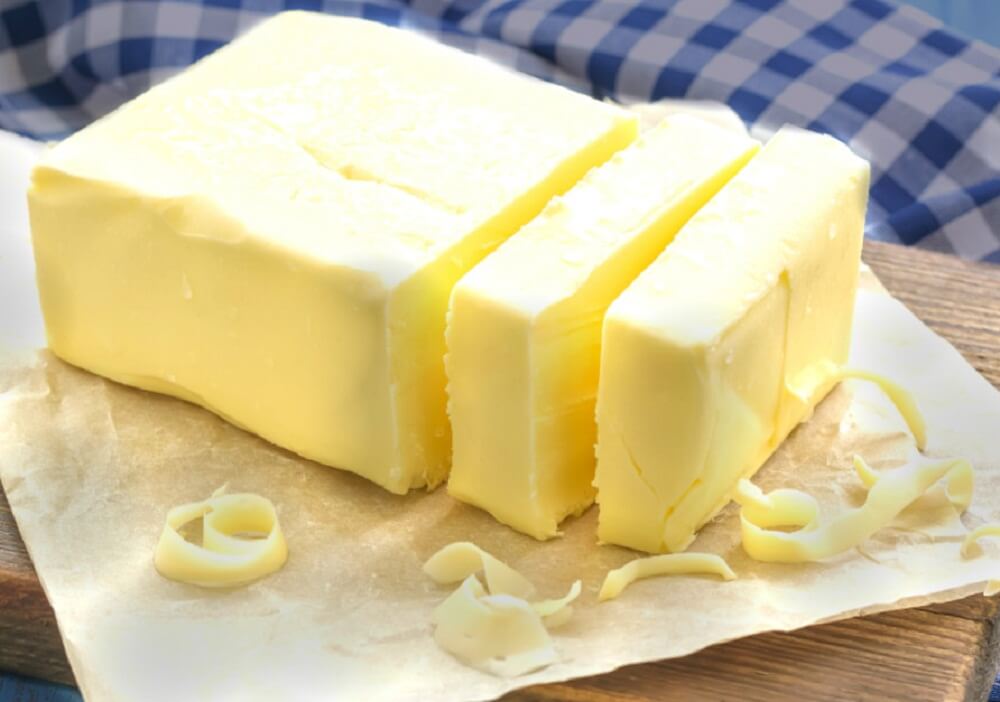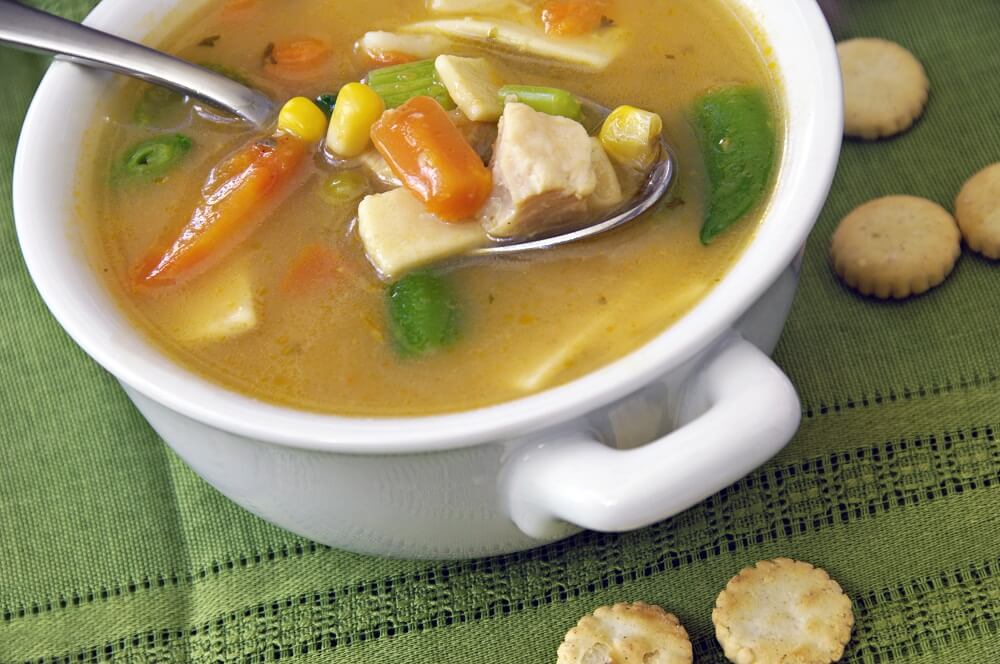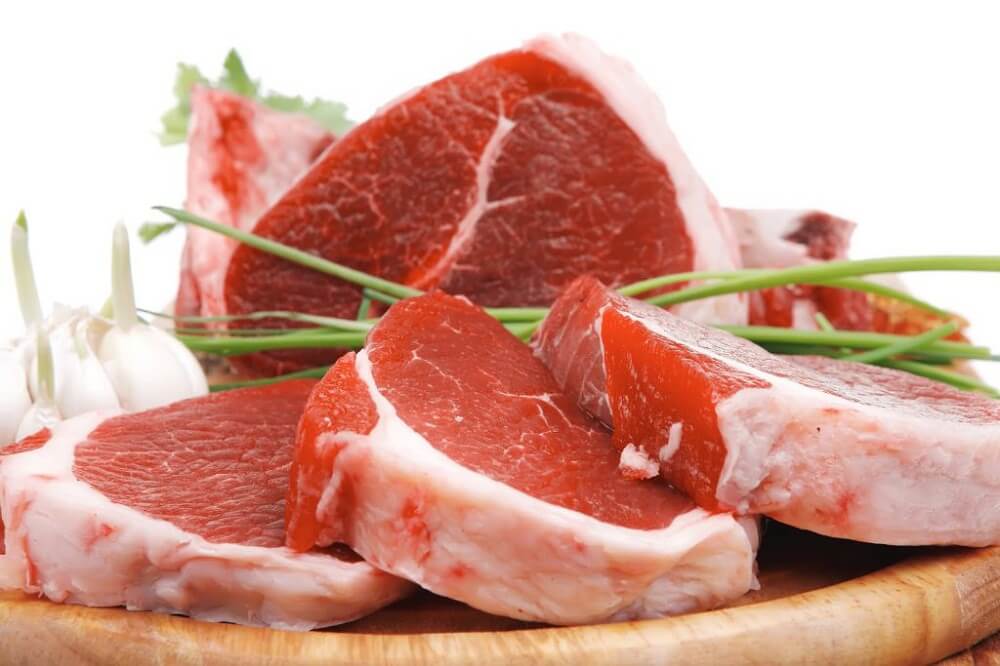6 Tips for Healthy Low-Fat Cooking


Reviewed and approved by the pedagogue in physical education and nutritionist Elisa Morales Lupayante
Excessive fat consumption is one of the main obstacles getting in the way of those dreaming of a controlled and healthy weight. Low-fat cooking is key in order to eliminate extra fat.
The main issue is that we ignore the fact that they’re in many of the foods we eat on a daily basis and, to make things worse, we don’t measure out portions nor consider fattening cooking methods.
This is why our diets often fail and, despite exercising, we struggle to get the results we want.
However, to get on the right track, trying out some tips that’ll help us cook healthier makes for a great start.
In this article, we’ll share the 6 best tips for low-fat cooking.
Let’s get started!
1. Substitute ingredients

Have you ever checked out the quality of the ingredients that you use to cook? Do you know what kinds of fats they have and how much of them they contain?
Well, if you haven’t already, you might be in for a big surprise.
Fortunately, you have the chance to substitute them for healthier options because there are lots of ingredients that have lower calories and fat content.
Suggestions:
- If you’re used to using animal fats, replace them with margarine– preferably with a “light” or “low-fat” variety.
- Check the labels choose those that are made with sunflower or canola oil.
- Instead of using hydrogenated vegetable oils, opt for healthy options like olive, avocado and sunflower oil.
- Avoid milk and derivatives. Try skim milk or vegetable milks.
Also see: 5 Ideal Foods to Cleanse Your Colon
2. Use alternative cooking methods
We already know that fried foods are easy to prepare and they’re quite tasty.
Unfortunately, it’s a cooking method that requires oils or fats which implies an “extra” load of fat.
Suggestions:
- Instead of frying, try boiling, steaming or baking as many dishes when possible.
- When preparing meats, and some vegetables, you can also opt for grilling.
3. Skim fat off broths

Suggestions:
- Wait for the broth to cool completely and when you can see the solidified fat, skim it off with a spoon or sieve.
- Another simple trick consists in preparing the broth a day before and freezing them. You’ll be able to remove the fat easily the next day before reheating.
We recommend that you read: Dangers of Instant Soups
4. Make lighter stir-fries
Tradition or cultural preferences have taught many of us to prepare stir-fries with high quantities of margarine or vegetable oils.
However, we can make lighter stir-fries by using a minimum amount of olive oil.
Suggestions:
- Heat a fry-pan over low heat and when it’s ready, add garlic, onion and other ingredients.
- Immediately after, splash them with a dash of olive oil and stir for 3 or 5 minutes.
5. Limit your meat intake

Including meats in your diet isn’t a bad thing. In fact, it’s recommended in order to meet the daily protein requirements.
The problem is that many people eat them in exaggerated portions and even if they eat small quantities, they choose the ones with harmful fats.
Suggestions:
- Measure out meat portions that you eat daily. Choose lean meats.
- Even though there will always be some hidden fat in the meat, lean meats are the healthiest option.
- Avoid cooking methods that use oils or added fats.
- If you choose to roast or bake dishes, let the fat drain for several minutes before serving.
- Prepare with minimal salt or use spices for seasoning.
6. Avoid commercial dressings and sauces
At the supermarket, we can find a wide variety of dressings and sauces that promise to make our favorite dishes even tastier.
While it might be true that they can add more flavor, many of them are made with oils and added chemicals that aren’t so healthy.
Suggestions:
- You might love their flavors, but try to stay as far away from these products as you can.
- Make your own homemade sauces, using 100% organic ingredients.
- There are dozens of dressing recipes that don’t contain oils.
- Dress your meats and stews with spices or lemon juice.
Want to improve your diet and limit your fat intake? If so, or if you want to loose weight, keep these recommendations in mind and start cooking healthier today.
All cited sources were thoroughly reviewed by our team to ensure their quality, reliability, currency, and validity. The bibliography of this article was considered reliable and of academic or scientific accuracy.
- Islam MA, Amin MN, Siddiqui SA, Hossain MP, Sultana F, Kabir MR. Trans fatty acids and lipid profile: A serious risk factor to cardiovascular disease, cancer and diabetes. Diabetes Metab Syndr. 2019 Mar-Apr;13(2):1643-1647. doi: 10.1016/j.dsx.2019.03.033. Epub 2019 Mar 16. PMID: 31336535.
- Estruch R, Ros E, Salas-Salvadó J, Covas MI, Corella D, Arós F, Gómez-Gracia E, Ruiz-Gutiérrez V, Fiol M, Lapetra J, Lamuela-Raventos RM, Serra-Majem L, Pintó X, Basora J, Muñoz MA, Sorlí JV, Martínez JA, Fitó M, Gea A, Hernán MA, Martínez-González MA; PREDIMED Study Investigators. Primary Prevention of Cardiovascular Disease with a Mediterranean Diet Supplemented with Extra-Virgin Olive Oil or Nuts. N Engl J Med. 2018 Jun 21;378(25):e34. doi: 10.1056/NEJMoa1800389. Epub 2018 Jun 13. PMID: 29897866.
- Zhong VW, Van Horn L, Greenland P, Carnethon MR, Ning H, Wilkins JT, Lloyd-Jones DM, Allen NB. Associations of Processed Meat, Unprocessed Red Meat, Poultry, or Fish Intake With Incident Cardiovascular Disease and All-Cause Mortality. JAMA Intern Med. 2020 Apr 1;180(4):503-512. doi: 10.1001/jamainternmed.2019.6969. PMID: 32011623; PMCID: PMC7042891.
This text is provided for informational purposes only and does not replace consultation with a professional. If in doubt, consult your specialist.








